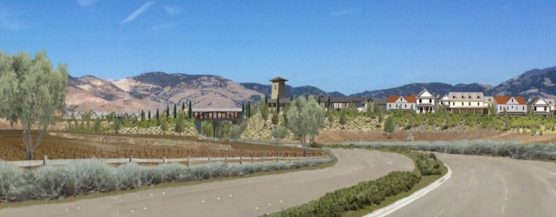By Hillel Aron
LOS ANGELES (CN) — A lawsuit by two environmental groups to stop the enormous and controversial Tejon Ranch Centennial Project can continue, a Los Angeles County judge ruled Friday, despite a recent settlement in a related case.
The suit, filed by the Center for Biological Diversity and the California Native Plant Society in 2019, aims to stop a new city from being erected in what is essentially the middle of nowhere, 65 miles north of downtown Los Angeles. That would-be city sits at the nexus of two of the state’s biggest anxieties: climate change and its housing crisis.
The publicly traded Tejon Ranch Company owns the largest piece of contiguous land in California, measuring some 270,000 acres straddling the border between Los Angeles and Kern counties, in a sparsely populated area. The ranch currently has a large agriculture operation, raising cattle and growing almonds, pistachios, grapes and alfalfa.
But the ranch’s owner wants to get into the development game. It has proposed building three separate large developments — two in Kern County and one at the northern end of LA County, the 12,000-acre Centennial project, a wildly ambitious plan comprising nearly 20,000 homes and more than 10 million square feet of commercial, retail and office space.
Defenders of the project, which include not just the company behind it but also labor groups, argue the development will create tens of thousands of jobs as well as housing — both badly needed in California.
“There is a collective recognition that developing in places like this has more costs than benefits,” said Nick Jensen of the California Native Plant Society. “Yes, it’s building housing. But at what cost?”
Opponents also cite the danger of wildfire in the area as a reason to block the project.
“Centennial was first conceived of 20 years ago, when we didn’t fully understand these risks,” said J.P. Rose, a senior attorney with the Center for Biological Diversity. “Developments like this are literally built to burn.”
Despite these fears, the L.A. County Board of Supervisors approved the project in December 2018 after extracting a big concession from the developers: a promise that 18% of its housing be affordable. Environmentalists sued, with Climate Resolve filing a its own lawsuit. At a hearing in its suit this past April, L.A. County Superior Court Judge Mitchell Beckoff effectively blocked the project pending a new environmental impact report.
But in December, Climate Resolve and Tejon Ranch reached a landmark settlement, with the developers agreeing to make all 19,300 homes “zero emission.” Among other things, the Tejon Ranch agreed to build the homes without natural gas hookups, to install 30,000 vehicle chargers throughout the community, and implement various fire prevention measures. Plans already called for all the homes to have solar panels. The agreement was enough to mollify Climate Resolve, but not the other two groups.
“We don’t think these measures go far enough in mitigating the immense climate impacts of this development located 60 miles from existing job centers,” said Rose.
Friday’s ruling, also by Beckoff, means the project’s future is still very much in question. At a minimum, it appears likely that Tejon Ranch will have to prepare a new environmental impact report, a long and costly endeavor.
“Today’s ruling simply dealt with a procedural issue,” Tejon Ranch’s vice president of communications Barry Zoeller in a written statement. “We are reviewing the ruling, but given the desperate need for new housing in California, especially affordable housing, we will continue to aggressively defend Los Angeles County’s approval of Centennial, which includes nearly 3,500 designated affordable housing units. Centennial sets a new standard for environmentally sensitive development in California, and that’s worth fighting for.”
Like this:
Like Loading...
Related





 Tweet This
Tweet This Facebook
Facebook Digg This
Digg This Bookmark
Bookmark Stumble
Stumble RSS
RSS


























REAL NAMES ONLY: All posters must use their real individual or business name. This applies equally to Twitter account holders who use a nickname.
0 Comments
You can be the first one to leave a comment.